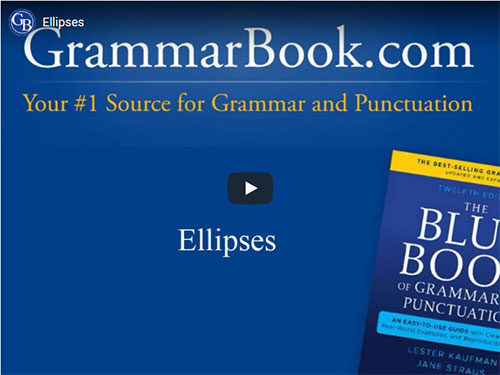|
Tackling More Tricky Word Choices:
As, Because, and Since
|
|
American English is a rich, expressive language. At the same time, it
includes words that sometimes appear to be alike but have slight
distinctions. Without recognizing those subtleties, we might use one word
when we mean another.
As, because, and since are three conjunctions that
introduce subordinate clauses (those that cannot stand alone in sentences)
connecting a result and a reason. A closer understanding of these words
helps us write with greater clarity and emphasis in achieving this.
We use because when we want to focus more on the reason. We use as and since when we wish to center on the result.
Most commonly, the because clause emphasizing the reason ends the sentence; the as or since clause stressing the result starts the sentence.
Examples
Result:
She got the promotion over four other candidates.
Reason:
She knew the system best.
Sentence emphasizing the reason with because clause: She got the promotion over four other candidates because she knew the system best.
Sentence emphasizing the result with as clause: As she knew the system best, she got the promotion over four other candidates.
Sentence emphasizing the result with since clause: Since she knew the system best, she got the promotion over four other candidates. |
The placement of the because, as, or since clause can be changed in the sentences above. Some writers might contend that only the shifted because clause maintains effective fluency while the repositioned as and since clauses sound more stilted. Moving the clauses will also change the emphasis by switching the order of the result and the reason.
Because she knew the system best, she got the promotion over four other candidates.
She got the promotion over four other candidates, as she knew the system best.
She got the promotion over four other candidates, since she knew the system best. |
Because is more common than as or since in both writing and speaking, suggesting we typically emphasize reasons more than results. As and since also are considered more formal in usage.
Looking at the details of these conjunctions polishes another tool in our
quest to be writers of precision and eloquence.
|
View and comment on this
article on our website.
|
|
|

|
 |
The Blue Book of Grammar and Punctuation
by Lester Kaufman and Jane Straus |
The Authority on English Grammar! Twelfth Edition Now Available
An indispensable tool for busy professionals, teachers, students, homeschool families, editors, writers, and proofreaders.
Available in print AND as an e-Book! Over 2,000 copies are purchased every month!
To order the book, simply click the link to order the book from the GrammarBook.com website.
|
Get Even More Useful Grammar Tips
In addition to our weekly newsletter, we post new entries about American English grammar. The following is our most recent article. Bookmark our GrammarBook blog and be sure to check it often.
What Is the Plural of Basis?
|
Free BONUS Quiz for You!
[[firstname]], because you are a subscriber to the newsletter, you get access to one of the Subscribers-Only Quizzes. Click here to take a Confusing Words and Homonyms Quiz and get your scores and explanations instantly!
We will be adding many more quizzes this year to our already substantial list of them. If you have suggestions for topics we have not yet covered, please send us a message at help@grammarbook.com.
|
Hundreds of Additional Quizzes
at Your Fingertips
Subscribe now to receive hundreds of additional English usage quizzes not found anywhere else!
Teachers and Employers
Save hours of valuable time! You may assign quizzes to your students and employees and have their scores tallied, organized, and reported to you! Let GrammarBook.com take the hassle out of teaching English!
"Fun to test my skills."
"The explanations really help ... thanks!"
"I can select the quizzes to assign to my students, and then the results are reported to me automatically!"
If you think you have found an error in a quiz, please email us at help@grammarbook.com
|
Wordplay
• Venison for dinner again? Oh deer!
• England has no kidney bank, but it does have a Liverpool.
• I tried to catch some fog, but I mist.
• They told me I had type A blood, but it was a typo.
• I changed my iPod's name to Titanic. It's syncing now.
|
 |
English In A Snap:
68 One-Minute English Usage Videos FREE |
Learn all about who and whom, affect and effect, subjects and verbs, adjectives and adverbs, commas, semicolons, quotation marks, and much more by just sitting back and enjoying these easy-to-follow lessons. Share them with your colleagues (and boss), children, teachers, and friends as well! Click here to watch.
|
|




